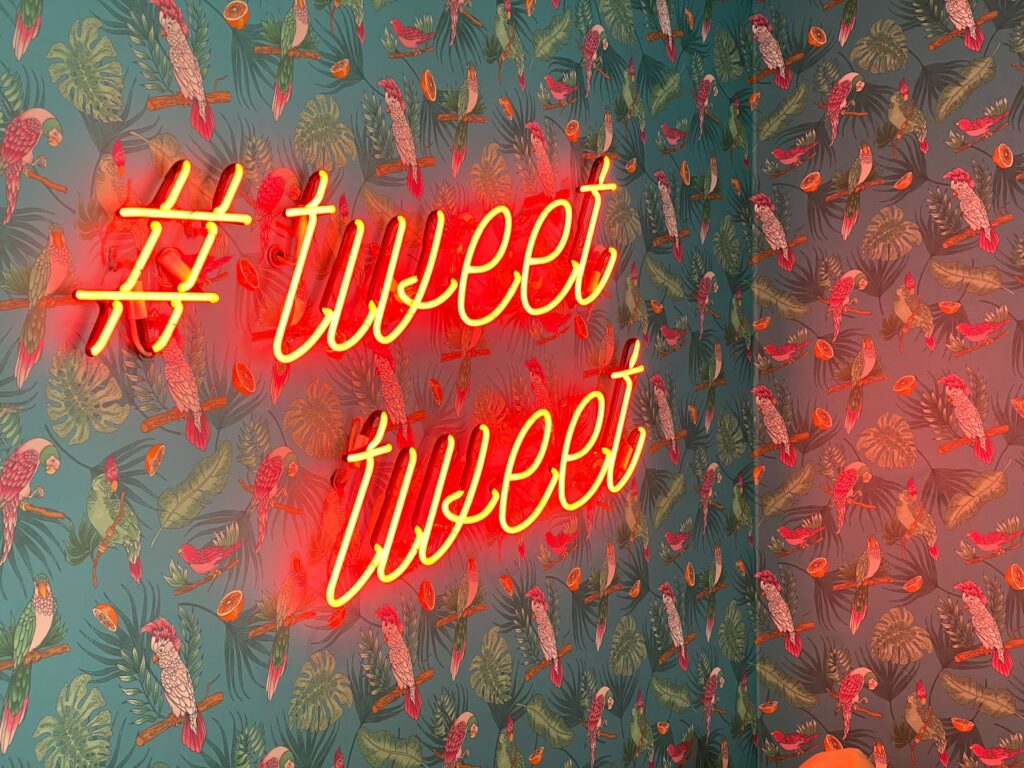
A Beginner’s Guide to Navigating Twitter Pitch Events

Twitter has become a popular platform for the writing community. You’ll often find authors sharing their work, engaging with their readers, and reaching new audiences. But Twitter has also become a place for mentorship and publishing opportunities, with Twitter pitch events becoming increasingly popular. It gives writers a chance to showcase their work and connect directly with literary agents.
What are Twitter pitch events?
Twitter pitch events take place on Twitter over a set period of time (usually a specific day, or over a weekend), and are designed for writers to showcase their work and connect with literary agents and publishers. During these events, writers pitch their manuscripts via tweet, and participating agents and editors will browse these pitches to scout for manuscripts they’d like to read more of.
Each pitch event has its own organisers and rules. But what they have in common is that each pitch must fit inside a single tweet, and include the event’s unique hashtags so agents and publishers can easily find your submissions. The ultimate aim is to give agents and publishers a captive marketplace in which they can find exciting and innovative work, give writers exposure, the opportunity to network, and potentially secure a book deal.

The history of pitch events
The original pitch event, #PitMad, was set up by Pitch Wars, a group founded in 2012 by Brenda Drake to match writers with mentors to teach the art of effective querying. The hashtag was a shortening of Pitch Madness, named after a popular mentoring blog contest she organised.
Drake created Pitch Wars as a mentoring program to help other writers who faced the same struggles she did when starting out. After noticing that agents frequently lost interest in stories as they progressed, she was struck by the idea of a fostering relationship between professional and aspiring writers, inspired by the relationships she saw on baking shows. The Twitter pitch event, #PitMad, was so popular that it became a quarterly occurrence, accompanied by a year-round mentoring program.
Not only did #PitMad give authors the opportunity to showcase their work through a faster and more accessible route to publishing than traditional agent querying, but it also opened up new opportunities for agents looking to foster new talent by allowing them to proactively engage with pitches quickly and easily. It also led to more diverse voices being showcased for writers, and agents who could represent a broader range of interests, tastes, and backgrounds.
Sadly, Pitch Wars and, consequently, #PitMad closed their doors in February 2022, so they no longer run events. But Drake’s achievements have spawned a host of other Twitter pitch events, many of which are genre specific, that writers can still take advantage of.
Why should you participate in a Twitter pitch event?
Participating in a Twitter pitch event is a fantastic opportunity if you ever plan on a traditional publishing journey. It gives you a chance to showcase your work to a large and actively engaged audience, and also get agent and publisher eyes on your work.
Obviously, the dream is to find representation and land a book deal, but even if that doesn’t happen immediately, pitch events are still valuable to participatipate in. They offer the opportunity to connect with a wider network of writers and gain insight into how an audience might respond to your work.
It’s also a great way to practice your skills. A Twitter pitch event requires brevity — you have to fit everything that makes your work unique and interesting into fewer than 280 characters. This is low-risk, but great practice for traditional query letters where you’ll need to summarise and hook an agent with your letter’s opening. Given how many pitches agents regularly receive, the more practice you get in making yourself stand out from the crowd, the better.

How to prepare for a pitch event
Research
Make sure you know as much about the pitch event you want to participate in as possible. Read the guidelines carefully and understand the rules and requirements to ensure you’re targeting the right audience and the right agents.
Knowing the rules and guidelines for each event means you’ll understand the format and length of the pitches, and what kind of information you should include in your tweet. Pitch events often have additional hashtags you need to use to indicate theme, subject, age group, or genre. Without these, agents might not end up seeing your work.
Craft a Strong Pitch
This may seem obvious, but just like an agent submission, you need to make sure your pitch is strong if you want it to catch an agent or publisher’s attention. Your pitch should be concise, attention-grabbing, and accurately reflect the essence of your story.
Avoid using plot-specific language and stick to generalities, so your pitch is easy to understand. Make the stakes of your story clear, and don’t be vague. If your character has a special skill, use that to sell your story. And definitely avoid rhetorical questions.
Before sending your pitch off into the Twitterverse, write several drafts and get feedback from friends or writing groups before settling on a final version. There are even practice pitch events, like #PracPit designed especially for pitch critiquing.
Be submission ready
Unless you’re participating in a non-fiction pitch event, make sure your manuscript is in the best shape possible before the event. Unlike non-fiction, which is speculative, fiction manuscripts must be ready to hand to an agent the second they request it. This means your manuscript needs to be complete and ready to go as soon as the pitch event starts.
Make sure you’ve revised, edited, and received feedback from beta readers. As most pitches are geared toward traditional publishing, you probably won’t need to hire an editor to polish your manuscript like you would to self-publish, but you still need to make sure your book is as close to publishing standard as you can get it.
Participate actively
Twitter pitch events are all about amplifying voices. Make sure you are active on Twitter during the event and engage with others who are participating.
Retweet if you can, and comment where it’s encouraged. Most pitch events rely on agents being the only ones to like a pitch as an expression of interest, so avoid liking other writers’ pitches unless explicitly allowed in the rule of the event.
Follow up
After the event, make sure to follow up with any agents or publishers who express interest in your work. This can help you build relationships, tell them more about you and your story, and hopefully land an agent at the end of it.
During the event, make a list of the agents or publishers who liked or retweeted your pitch, and take note of any specific comments or feedback they gave. Don’t be afraid to reach out to them after the event has ended to thank them for their interest, and provide additional information if requested.

Popular pitch events
There are many pitch events active on Twitter in 2023. Each event will have its own rules and requirements, so be sure to visit their websites to find out how best to position your pitches.
- #DVPit – a showcase for work from unagented, marginalised voices historically underrepresented in publishing.
- #moodpitch – A unique Twitter pitch event using mood boards to help depict your story’s tone and themes.
- #PitBLK – a pitch event centred around Black creators.
- #PitDark – a showcase for literature with darker themes ranging from horror to thrillers, non-fiction and dark fantasy
- #PitLight – an authors-only pitch event centred around positivity and uplifting other writers. Agents do not participate in this event.
- #HarlequinPitch – a pitch event for romance authors specifically for publication with Harlequin, a popular romance imprint of HarperCollins.
- #PitchDis – a pitch event for disabled authors inspired by #DVPit
- #SFFPit – a pitch event especially for science fiction and fantasy authors
Twitter pitch events offer writers a fantastic chance to connect with agents, publishers, and other writers. By putting in the effort to prepare a well-crafted and compelling pitch, you increase your chances of success. Remember, Twitter pitch events are just one possible step on your journey to becoming a published author, but it can be a significant one. So take the chance and showcase your writing to the world — you never know what opportunities may come your way!































